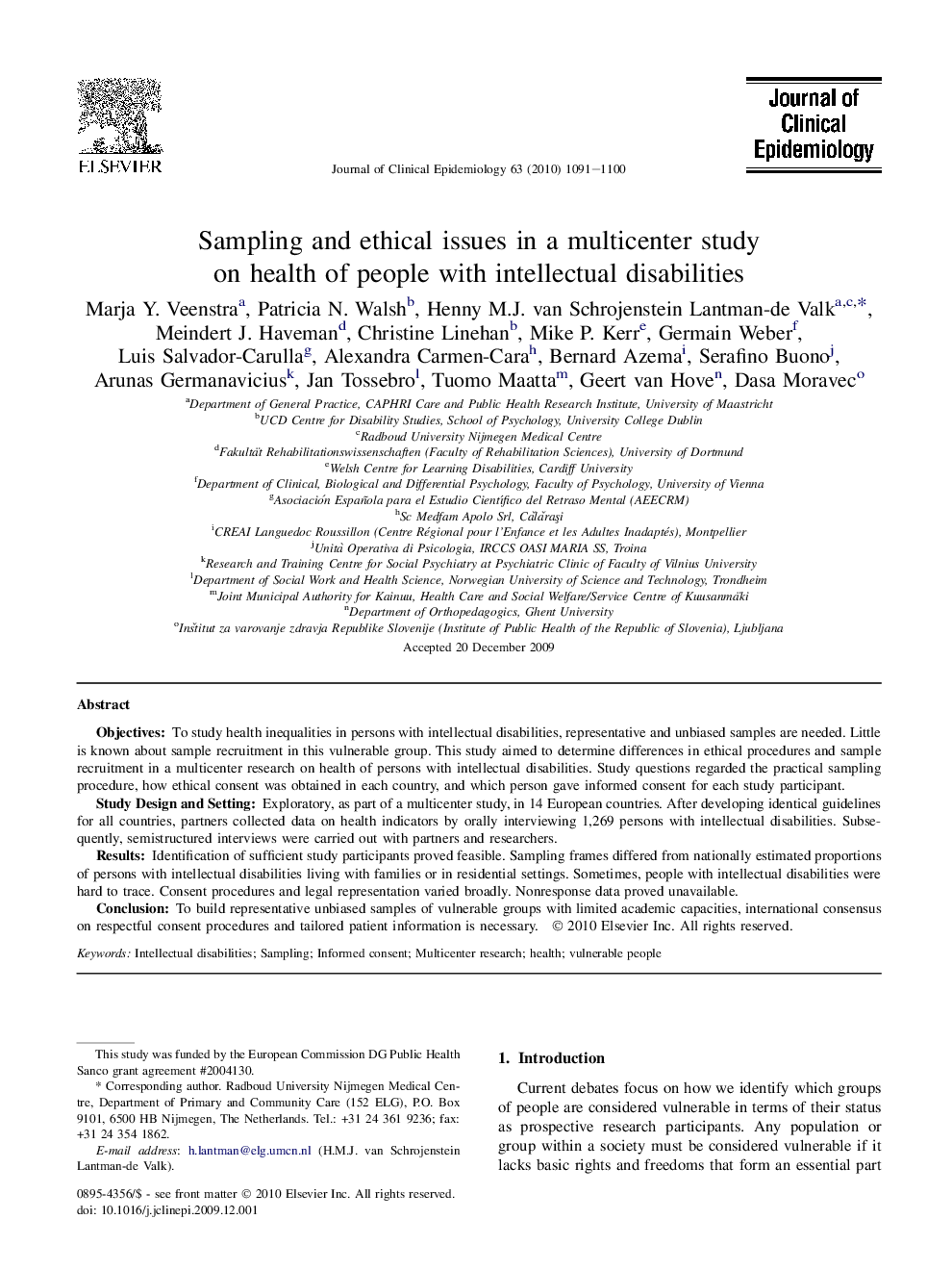| Article ID | Journal | Published Year | Pages | File Type |
|---|---|---|---|---|
| 1083173 | Journal of Clinical Epidemiology | 2010 | 10 Pages |
ObjectivesTo study health inequalities in persons with intellectual disabilities, representative and unbiased samples are needed. Little is known about sample recruitment in this vulnerable group. This study aimed to determine differences in ethical procedures and sample recruitment in a multicenter research on health of persons with intellectual disabilities. Study questions regarded the practical sampling procedure, how ethical consent was obtained in each country, and which person gave informed consent for each study participant.Study Design and SettingExploratory, as part of a multicenter study, in 14 European countries. After developing identical guidelines for all countries, partners collected data on health indicators by orally interviewing 1,269 persons with intellectual disabilities. Subsequently, semistructured interviews were carried out with partners and researchers.ResultsIdentification of sufficient study participants proved feasible. Sampling frames differed from nationally estimated proportions of persons with intellectual disabilities living with families or in residential settings. Sometimes, people with intellectual disabilities were hard to trace. Consent procedures and legal representation varied broadly. Nonresponse data proved unavailable.ConclusionTo build representative unbiased samples of vulnerable groups with limited academic capacities, international consensus on respectful consent procedures and tailored patient information is necessary.
